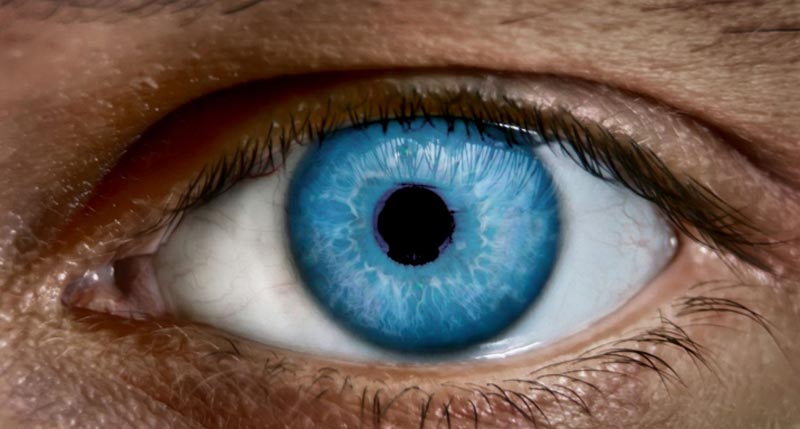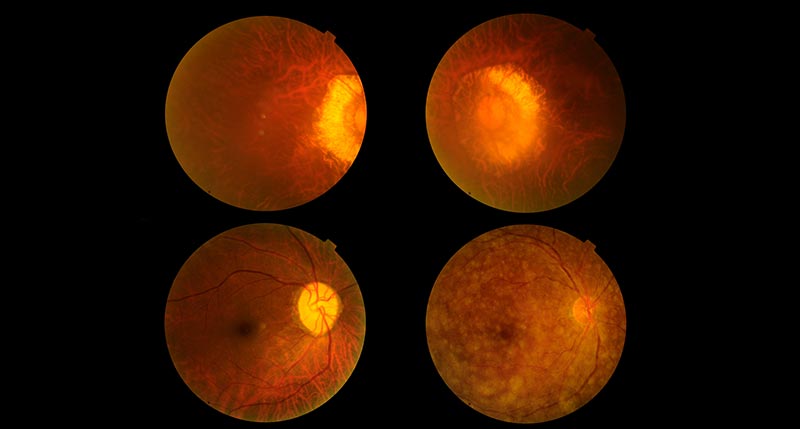What are Eye Floaters?
If you haven’t yet experienced floaters in the eye, it’s understandable that you may be puzzled about what they are and what they look like. However, as you age, floaters become more common. You will get used to seeing an oddly shaped shadow or two floating around in your visual field, and then you’ll know what they are. You will likely continue to experience them occasionally throughout your life.
Floaters are a normal part of the aging eye, and most often are harmless. Floaters form when the vitreous gel that gives the eye its rounded shape starts to liquify and shrink in size. As this happens, the vitreous forms clumps of stringy cells that float around in your eye, casting shadows onto your retina. These black or gray cobwebs or squiggly shadows in your vision are known as “floaters.”
Should I Be Concerned About Floaters in my Vision?
For the most part, occasional floaters in your visual field are not a concern.
The shrinking of the vitreous gel in the eye is a natural part of aging. However, it can be alarming when you see your first floater.
Floaters are most noticeable when you’re looking at something bright, light, or white. You might notice them more when you look up at the sky, stare at a wall or look at a white screen. The contrast between the light background and the shadows across your visual field is stark and noticeable under such conditions.
But floaters don’t just stay put so you can get a good look at them. As their name indicates, they float and move around as your eyes blink and focus. As a result, it’s difficult to look right at a floater—though it can be amusing to try.
Who Develops Floaters?
As a part of the eye’s normal aging process, almost everyone will eventually develop floaters in their vision. They are especially common after age 35, though some might see floaters at a younger age.
You might also be more likely to develop floaters if you:
- Are myopic (nearsighted)
- Are diabetic
- Have undergone cataract repair surgery
What Causes Floaters?
Seeing floaters now and then is a common occurrence. They appear due to normal, natural changes in your eyes as you age.
However, when multiple floaters appear in your vision quite suddenly, it could be a symptom of a serious situation or eye condition, including:
- Eye injury or infection
- Inflammation of the eye (uveitis)
- Bleeding inside the eye
- Vitreous detachment
- Retinal tear
- Retinal detachment
If you suddenly notice a significant number of new floaters, call your optometrist. The occasional floater is normal, but multiple new floaters—or a single large floater that impedes vision—are potentially problematic conditions that your optometrist will want to check to ensure your eyesight is not in jeopardy.
How are Floaters Related to Retinal Detachment?
One specific condition that a sudden influx of new floaters can indicate is retinal detachment—that’s when the retina detaches from the back wall of the eye. Retinal detachment is a serious eye emergency that requires immediate treatment, or you risk losing vision in that eye.
Symptoms of a retinal detachment include a lot of new floaters, flashes of light, decreasing side vision, and/or a dark shadow or blurred area in your side or central vision that seems like a curtain or veil has come down over your vision. If you experience these symptoms, call your eye doctor or go to the emergency room immediately for treatment.
How to Live with Floaters
Typically, a floater or two in your visual field is not cause for concern. Floaters usually don’t need any treatment. In some very rare cases when floaters interfere with a patient’s daily life, a surgery called a vitrectomy can remove the entire vitreous and the floaters along with it to eliminate them once and for all.
Otherwise, your floaters are likely here to stay and will occasionally appear in your line of sight but should not cause you any pain or problem.
If you have questions about occasional floaters and your experience with them, we will be happy to discuss them during your annual comprehensive eye exam.





